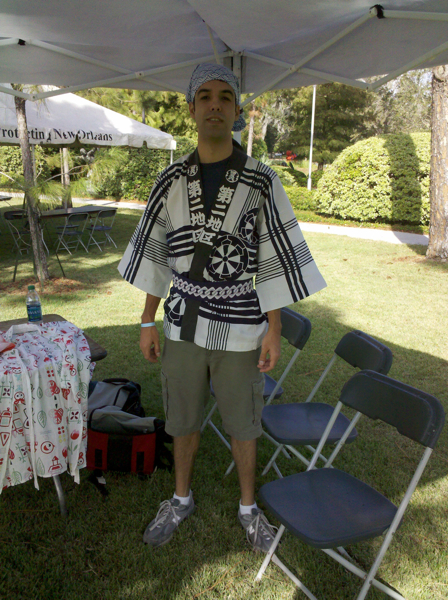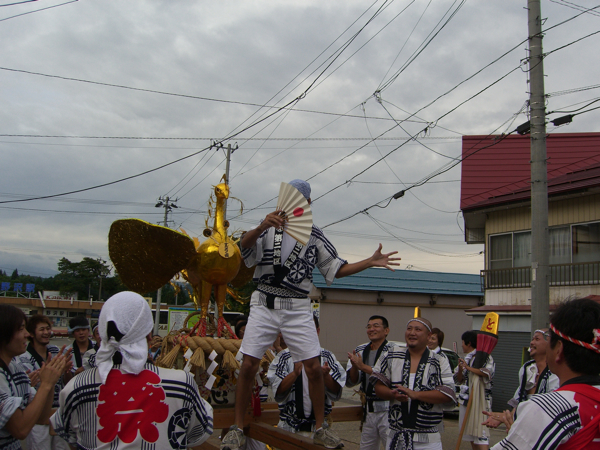Well, I’ve emerged from the Pain Cave just in time to turn 30 and to finally get around to transferring my new domain name howtojapanese.com to Namecheap and setting it redirect to howtojaponese.com. I do hereby return this blog to its original name, How to Japanese! (And the crowd goes wild.)
A couple of weeks ago was Japan Fest over at the New Orleans Museum of Art in City Park. Last year I wrote about the Yakumo Nihon Teien (named for the original Japanophile, Lafcadio Hearn) over at Untapped Cities.
This time, I geared up 祭り-style with my happi to fold some cranes and dress some folks in yukata. Devoted readers might recognize this clothing from the local autumn festival in Nishiaizu.
My participation in the Nishiaizu festival involved helping carry the mikoshi, eating lots of food, and drinking lots of beer. It was a fun time. I was also required to embarrass myself at least once a year by performing the 景気. The mikoshi made the rounds of different neighborhoods, stopping frequently at houses to receive donations and to もむ (lift up and down). Occasionally we parked in front of a house for snacks and a rest. And when we began again, we had to 付ける the 景気 – literally, “apply the good energy.” If you checked out the definition on kotobank, you could say “apply the 元気.”
This meant someone stood up on the mikoshi, shouted 景気を付けて! (which sounded something like けいーきをーつけて: the い and the を were drawn out) and did a little dance while holding a fan. The rhythm was kind of similar to a slow version of a 三本締め party close. Here is what a certain foreigner looked like (his face has been covered to protect the rhythmically challenged):
(Notice the courtesy laughs and the pity smiles.)
The first time I did it, I had no idea what it meant and just followed the instructions of my adopted 祭り family, but I asked in later years and came to have an understanding of what it meant: the person is helping to provide a sense of good spirit for the people who provided snacks. As always, translating this phrase will make you feel like an idiot or a Neo-Confucianist philosopher, so just concentrate on understanding it in Japanese.
I noticed that other people who did the 景気, notably guys, always said 付けろ rather than 付けて. Whenever it was my turn, though, there was a brief debate amongst the townsfolk about whether I should use 付けて or 付けろ, and the former always won. The latter was considered a “bad word” – a curse word, basically.
Until that point, I don’t think I’d ever had a real conception of what the imperatives felt like for Japanese. I used てください and て pretty consistently, and I knew that the ろs and れs were stronger, but I didn’t know exactly how strong. Now you know, and knowing is half the battle, as it were.
Check out this video on YouTube to see some もむ action and read the caption to check out how 景気を付ける gets used.


